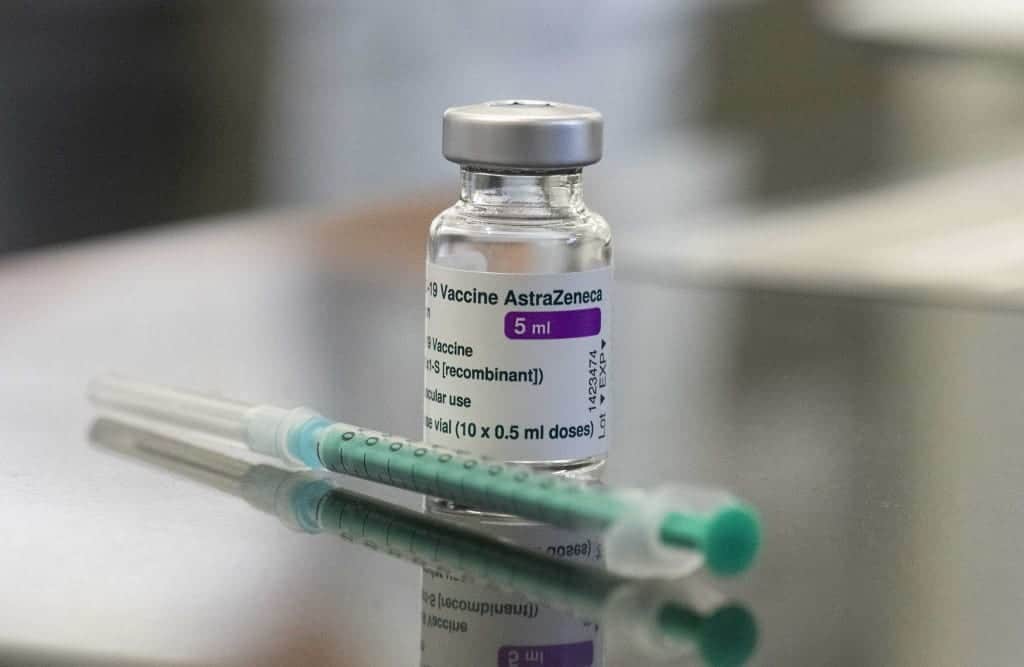Costa Rica on Wednesday will receive its first doses of the AstraZeneca coronavirus vaccine. Administration of this formula has been suspended by several countries over concerns about blood clots.
Daniel Salas, Health Minister, has said Costa Rica plans to apply the AstraZeneca vaccine but will monitor international studies pertaining to a possible link between the shot and adverse health issues.
“We are giving time for the competent agencies to do the respective investigations based on solid information, which allows us to better evaluate the behavior to follow,” Salas said in mid-March.
“There is currently no scientifically proven link between the application of the vaccine and the appearance of blood clots; that is under investigation.”
Costa Rica approved the AstraZeneca vaccine in February based on the endorsement of the European Medicines Agency (EMA). The United States, for its part, has not yet authorized the AstraZeneca formula because clinical studies there are ongoing.
The EMA continues to say the benefits of the AstraZeneca vaccine “outweigh the risks.” Below is their latest communication on the subject. We have bolded key information.
****
EMA’s safety committee (PRAC) is meeting today, Wednesday 31 March, in the context of its ongoing review of very rare cases of unusual blood clots associated with low numbers of platelets, in people vaccinated with AstraZeneca’s COVID-19 vaccine (now called Vaxzevria).
EMA convened an ad hoc expert group meeting on Monday 29 March to provide further input into the ongoing assessment. Independent external experts with a range of medical specialities, including haematologists, neurologists and epidemiologists, discussed specific aspects such as possible mechanisms, whether underlying risk factors could be identified and what additional data are needed to further characterise the observed events and the potential risk. The outcome of this meeting will be discussed by the PRAC and feed into its ongoing evaluation.
At present the review has not identified any specific risk factors, such as age, gender or a previous medical history of clotting disorders, for these very rare events. A causal link with the vaccine is not proven, but is possible and further analysis is continuing.
As communicated on 18 March, EMA is of the view that the benefits of the AstraZeneca vaccine in preventing COVID-19, with its associated risk of hospitalisation and death, outweigh the risks of side effects.
More information and advice for healthcare professionals and the public is available in the vaccine’s product information and the associated direct healthcare professional communication. Vaccinated people should be aware of the remote possibility of these very rare types of blood clots occurring. If they have symptoms suggestive of clotting problems as described in the product information, they should seek immediate medical attention and inform healthcare professionals of their recent vaccination.
EMA continues to work with the national authorities in the EU Member States to ensure that suspected cases of unusual blood clots are reported; these cases are being analysed in PRAC’s ongoing assessment.
Based on all the currently available data, PRAC is expected to issue an updated recommendation during its April plenary meeting (6–9 April).
The report describing the PRAC’s preliminary assessment of the reported cases of blood clots and conclusionsis available.
More about the procedure
The review of cases of very rare cases of unusual blood clots associated with low blood platelets (thrombocytopenia) is being carried out in the context of a safety signal, under an accelerated timetable. A safety signal is information on a new or incompletely documented adverse event that is potentially caused by a medicine such as a vaccine and that warrants further investigation.
The review is being carried out by EMA’s Pharmacovigilance Risk Assessment Committee (PRAC), the Committee responsible for the evaluation of safety issues for human medicines. Once the review is completed, PRAC will make any recommendations necessary to minimise risks and protect patients’ health. The PRAC recommendations will then be sent to the Committee for Medicinal Products for Human Use (CHMP), responsible for questions concerning medicines for human use, which will rapidly adopt the Agency’s opinion.
EMA provides scientific recommendations underpinning the safe and effective use of COVID-19 vaccines.
EMA’s recommendations are the foundation upon which individual EU Member States will design and implement their own national vaccination campaigns. These may differ from country to country depending on their national needs and circumstances, such as infection rates, priority populations, vaccine availability and hospitalisation rates.






